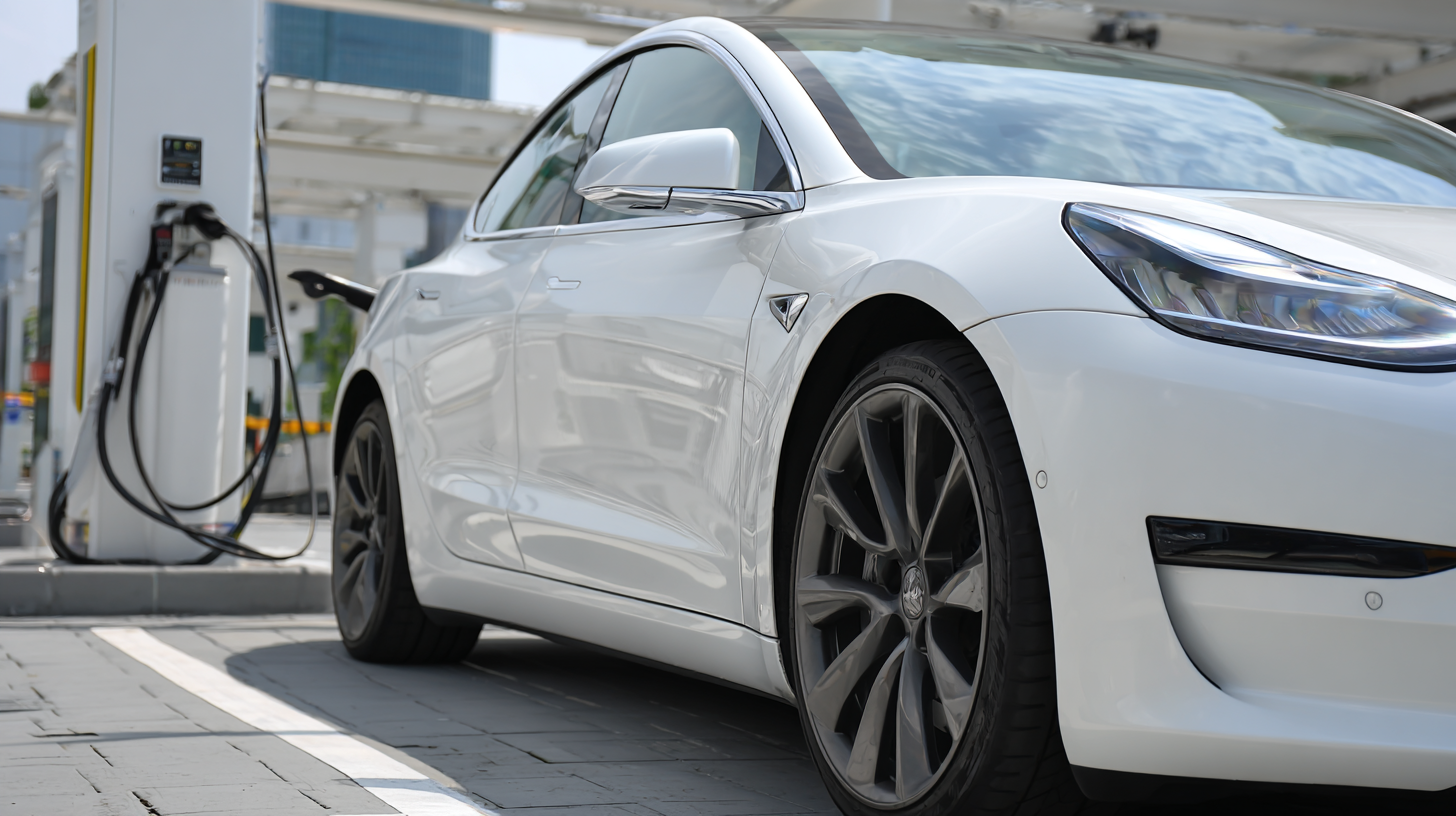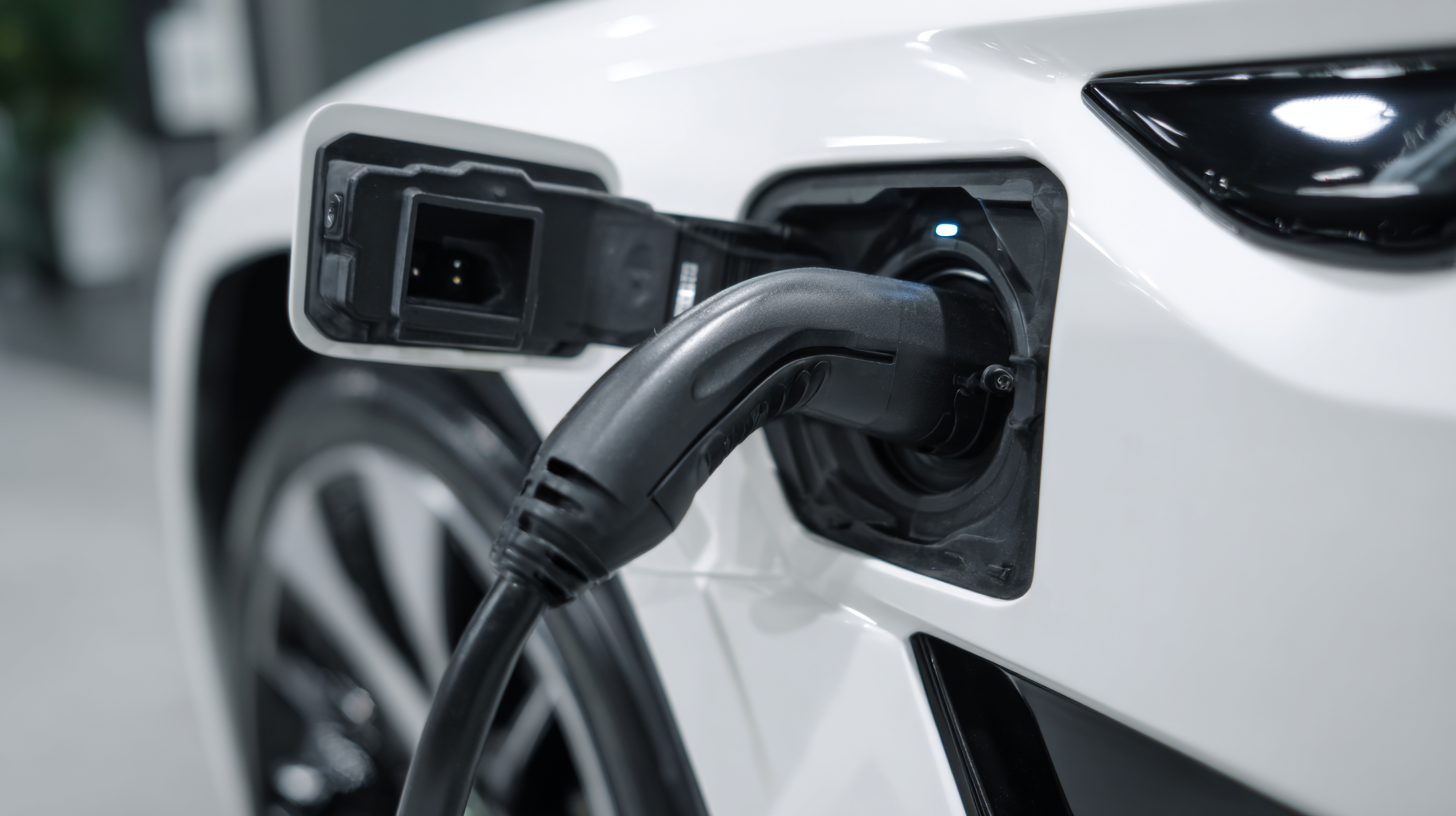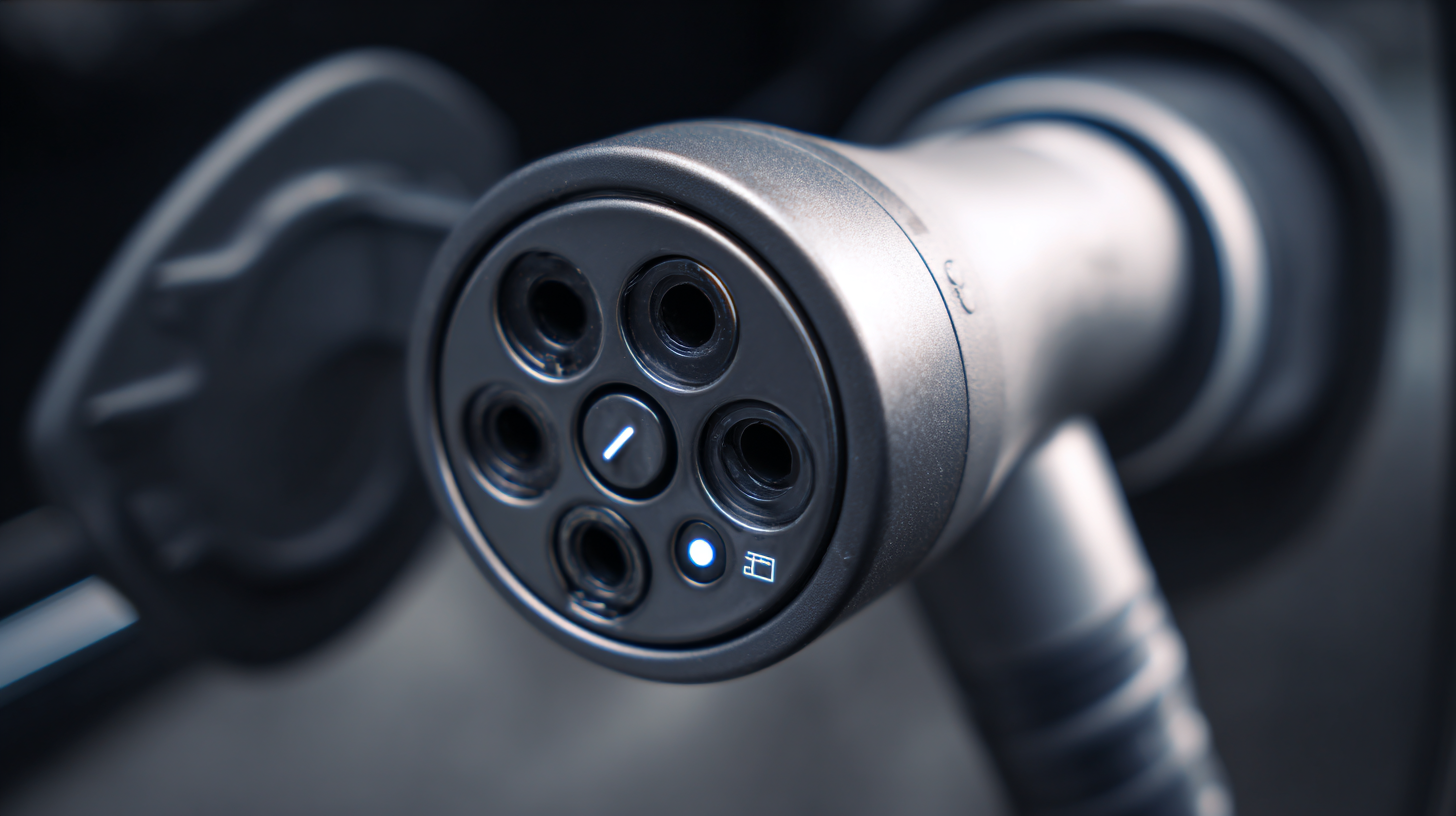As the electric vehicle (EV) market continues to surge, with a projected compound annual growth rate (CAGR) of over 22% from 2023 to 2025 according to the International Energy Agency, the importance of a high-quality Electric Vehicle Charger cannot be overstated. The shift towards sustainable transportation is driving innovation and developments in charging technology, making it pivotal for EV owners to have access to efficient, reliable, and user-friendly chargers. Reports indicate that by 2025, the number of public EV charging stations could surpass 10 million worldwide, highlighting the escalating demand for advanced charging solutions. This rapid growth underscores how the right Electric Vehicle Charger can not only enhance the overall charging experience but also contribute significantly to the efficiency and convenience of electric mobility. In this blog, we will explore seven key reasons why investing in the best Electric Vehicle Charger will transform your charging experience and drive the future of automotive technology.

High-speed charging technology is revolutionizing the way electric vehicle (EV) owners experience their daily charging routines. As the demand for electric vehicles escalates, the shortcomings of traditional charging methods are becoming increasingly evident. Recent industry reports indicate that the market penetration of new energy vehicles in China has fallen to 41.5%, a significant decline from its peak of 53.7%. This downturn highlights the urgent need for improved charging infrastructure and capabilities to enhance user experiences.

One of the most significant advantages of high-speed chargers is notably reduced charging wait times. In an era where convenience is paramount, longer waiting periods for EV charging can deter potential buyers. Fast chargers can replenish batteries to 80% capacity in roughly 30 minutes, making it comparable to a quick stop at a gas station. With the projected growth of EV sales, which could reach 20 million units by 2025, the adoption of advanced charging solutions is vital.
Moreover, high-speed charging brings the promise of greater accessibility as charging infrastructure expands. With innovative technologies like wireless charging beginning to emerge, the landscape of EV charging could become even more user-friendly. As the industry adapts to these technological advancements, the ability for EV owners to charge quickly and efficiently will ultimately shape the future of electric mobility, aligning with global trends towards sustainable transportation solutions.
The rapid evolution of smart technology has significantly enhanced the electric vehicle (EV) charging experience, making it faster, more efficient, and user-friendly. Integrating smart features into EV chargers allows for real-time monitoring and optimization of charging sessions. For instance, many modern chargers now come equipped with apps that provide users with the ability to schedule charging times based on energy rates, ensuring they take advantage of lower utility costs during off-peak hours. This not only saves money but also contributes to a more sustainable energy consumption pattern.

Moreover, smart technology improves the overall performance of chargers through features such as automatic fault detection and Wi-Fi connectivity. This ensures that users are instantly alerted to any issues with the charging process, enabling prompt troubleshooting. Additionally, some chargers utilize machine learning algorithms to analyze charging habits, offering personalized recommendations to maximize efficiency. These advancements not only enhance convenience for users but also play a pivotal role in reducing energy wastage and optimizing charging infrastructure, paving the way for a greener future in electric mobility.
In recent years, the shift towards electric vehicles (EVs) has opened up new avenues for cost-effective charging solutions, significantly transforming the way we approach EV charging. One of the standout features of the best electric vehicle chargers is their ability to save money over time. By investing in a high-quality charger, EV owners can take advantage of lower electricity rates during off-peak hours, maximizing savings while minimizing their overall energy costs.
Cost-effective charging solutions are not just about the immediate expenses; they can lead to substantial savings in the long run. As the electric vehicle market continues to expand, the demand for efficient home and public charging stations is surging. This trend is further supported by advancements in battery technology and government incentives aimed at promoting EV adoption.
By choosing a reliable charger, users can experience faster charging times and reduced wear on their vehicle’s battery, all while keeping energy expenses in check. The economic benefits are clear, making the best electric vehicle charger an essential component for savvy consumers looking to embrace the future of transportation.
The electric vehicle (EV) market is rapidly evolving, and one key aspect that significantly enhances the user experience is the functionality of charging stations. With the recent launch of powerful 600kW and 180kW DC fast chargers, the focus is not only on speed but also on user-friendly features that simplify the charging process. These advanced chargers can efficiently reduce wait times, allowing drivers to replenish their vehicles swiftly while enjoying seamless integration with smart technology.
Moreover, as charging infrastructure develops, companies are emphasizing the importance of customer-centric design. Innovative solutions, like features that provide real-time updates on charger availability and status, are becoming increasingly essential. These enhancements cater to the modern driver's needs, making public charging more accessible and less intimidating. As EV technology progresses, the interplay of speed, efficiency, and user-friendly features will undoubtedly transform how we engage with electric vehicles, setting new standards in the charging experience.
| Feature | Description | Benefit |
|---|---|---|
| Fast Charging | Reduces charging time significantly with high power output. | Convenience of getting back on the road quickly. |
| Mobile App Integration | Allows users to monitor and control charging remotely. | Enhanced control and accessibility from anywhere. |
| Multiple Charging Modes | Supports different charging levels (Level 1, Level 2, DC fast charging). | Versatility for various charging needs and situations. |
| Safety Features | Includes features like overcurrent protection and temperature control. | Peace of mind while charging. |
| User-Friendly Interface | Intuitive design with clear instructions and notifications. | Easy and hassle-free operation for all users. |
| Compact Design | Space-efficient and easy to install in various locations. | Saves space and is aesthetically pleasing. |
| Energy Management | Optimizes energy consumption based on user preferences. | Lower energy costs and better sustainability. |
Upgrading your electric vehicle (EV) charger can significantly enhance your charging experience and have a notable environmental impact. As the adoption of EVs surges globally, the importance of efficient and reliable charging infrastructure becomes increasingly clear. Research indicates that improved charging technologies can optimize grid performance and reduce the carbon footprint associated with energy use. For example, integrating smart charging solutions can lead to a 30% reduction in energy consumption, aligning with environmental goals and contributing to a sustainable transportation ecosystem.
Tips: When considering an upgrade, focus on chargers that offer compatibility with multiple networks. Notably, chargers boasting advanced DC fast-charging capabilities can reduce charging times significantly, allowing greater convenience during travels.
Moreover, studies reveal that strategic placement of charging stations can further enhance accessibility, leading to an increase in EV adoption rates. The implementation of advanced algorithms for station location optimization, such as custom K-means clustering approaches, highlights the importance of data-driven decisions in infrastructure planning.
Tips: Look for networks that not only provide fast charging but also prioritize sustainability and simplify the user experience. Upgrading to the latest technology not only ensures quicker charging but also contributes positively to the environment and the broader goal of reducing fossil fuel dependency.
